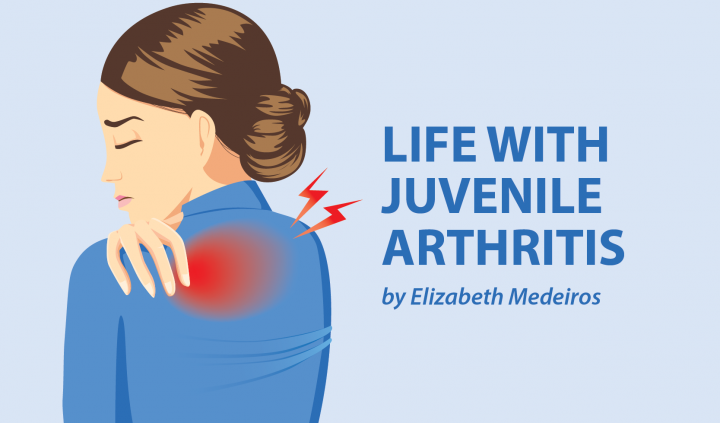For the most part, I looked like a normal teenager. But on annual trips to Disney World, I felt like I stuck out like a sore thumb. During the day, I used a wheelchair so I wouldn’t have to walk too much. It was a great way to prevent pain and allow me to enjoy my experience. But the stares I would get from others was pretty uncomfortable. The dirty looks I would occasionally get while taking short breaks to walk around were enough to spoil my day.
While most kids with JA do not require mobility aids for daily use, many will use one from time to time. Some kids may need a wheelchair or cane during a bad flare. Many families also choose to use a wheelchair while on vacation, especially to popular tourist destinations that require a lot of walking.
But while they can be extremely helpful, mobility aids attract stares from strangers. While some may be curious, some may be wondering why a seemingly healthy child needs a wheelchair. And there may even be some dirty looks if your child gets up to stretch or walk short distances.
While I’ve noticed people have become less judgmental over the years, it still happens and can really hurt. I’ve found two ways to deal with it:
Advocate
Whenever I know I will be using a wheelchair, I like to take the opportunity to advocate for those of us with hidden disabilities. Wearing clothes that represent juvenile arthritis can help educate curious onlookers. I’ve seen people wear ball caps and T-shirts with the slogan “Kids get arthritis too,” and I have worn the jerseys I received for doing the National Psoriasis Foundation’s Team NPF walk.
If this is something your child would like to do, you can find awareness tees through a Google search. I prefer finding sellers on Etsy who donate to the particular cause! Or get creative and design your own gear as a family. That way the whole family can represent JA.
Ignore
When I use my cane, I simply choose to ignore the looks. I think learning to ignore what others think is a hard lesson, but well worth it. Being able to shrug off a stare can make the day more enjoyable for your family. Depending on the situation and your child’s age and personality, it can be easier said than done. For example, a pre-teen or a teenager at school will probably feel more self-conscious than a preschooler at Disneyland.
When you’re in public, there’s little more you can do than to distract your child or remind them that people are curious and don’t mean any harm. But it can help a lot to talk about how they feel at home. Through talking, you can often help your child find solutions. Small changes can help even the most self-conscious child feel better. When I was a teenager and using a wheelchair on vacation, transferring out of my wheelchair for meals, shows, and during rest times made me feel more comfortable.
Learn to help yourself
Kids with arthritis face such a unique challenge — to visibly care for an invisible disease. It can be hard to care for yourself when you have judgmental, ignorant eyes on you. Many kids choose to push past the pain to keep up appearances — and that’s unfair. Parents, help your child with arthritis make the best of their situation by helping them to advocate and build up the confidence to ignore the ignorant.
Since I was a child, I’ve used mobility aids when needed. And while the stares I got were uncomfortable, I think they made me a more confident adult. Learning to advocate to those who wanted to learn, and ignoring the ignorant ones helped me learn there’s no pleasing anyone but yourself. The best thing you can do for yourself is to care for yourself, ignore who sees, and be happy because you feel better.
***
Note: Juvenile Arthritis News is strictly a news and information website about the disease. It does not provide medical advice, diagnosis, or treatment. This content is not intended to be a substitute for professional medical advice, diagnosis, or treatment. Always seek the advice of your physician or other qualified health provider with any questions you may have regarding a medical condition. Never disregard professional medical advice or delay in seeking it because of something you have read on this website. The opinions expressed in this column are not those of Juvenile Arthritis News, or its parent company, BioNews Services, and are intended to spark discussion about issues pertaining to juvenile arthritis.


